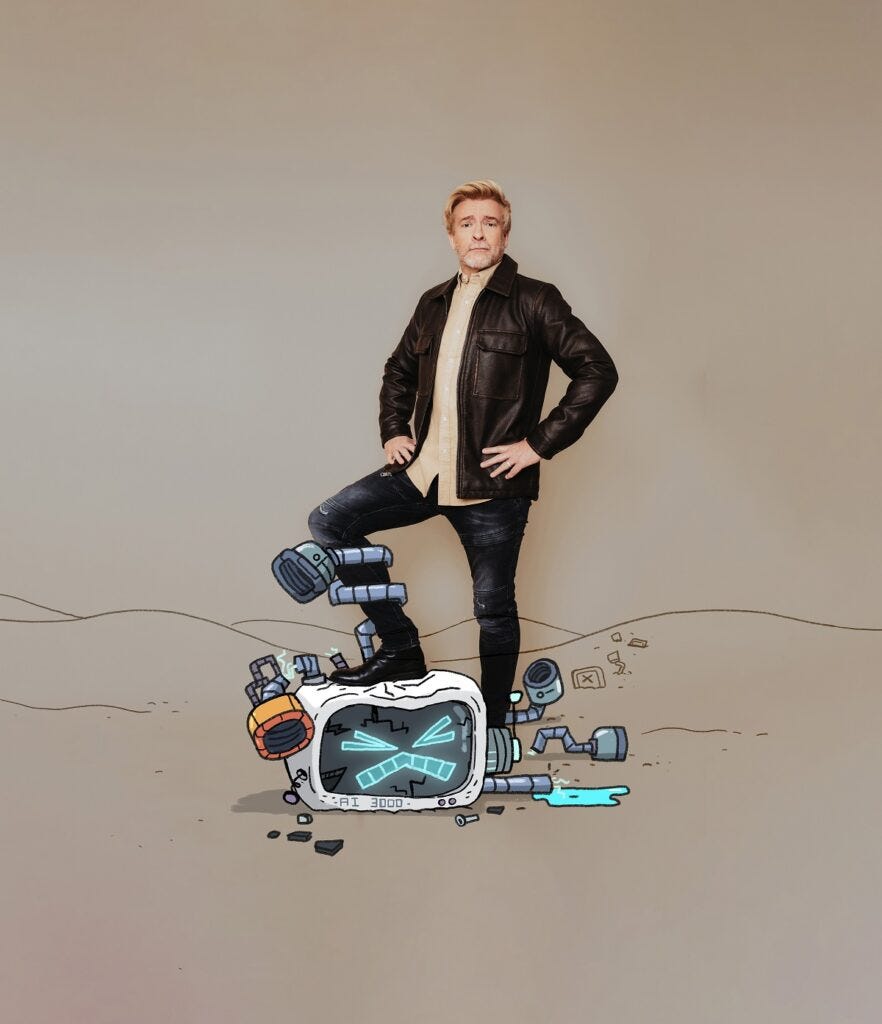The Powerful Boringness of AI: We prefer not to talk about it
THE POWERFUL BORINGNESS OF AI
You cannot talk about innovation right now without talking about AI. Or can you?
Certainly the festivals in Edinburgh this year tried.
We ran 22 hours of interviews with artists involved in this year’s Edinburgh festivals ranging from:
+ actors
+ directors
+ musicians
+ composers
+ lyricists
+ producers
+ visual artists
+ curators
+ arts managers
We specifically asked them open questions around
‘what is exciting in the world right now?’
and also
‘what scares you or what do you think need to change.’
So in this format how many unprompted mentions of AI did we get?
One.

More on that one later.
Lets just dwell on the discrepancy here between the level of interest in AI among highly creative people, and the level of interest of the innovation world and media. Not least because one of the hardest things for researchers, strategists and futurists to hear often is silence.
A few newspapers directly went out to chart work that was on offer around the biggest story in the innovation world right now during the festival. Given they were looking at it it is not a surprise that they found at least something.
There were of course a handful of shows about AI this year, but you would be forgiven from reading these articles to think that it was a dominant theme. Actually there were fewer shows directly about AI in 2025 than last year (or the year before that).
Where it came up as a sideplot in stageshows it was more an easy punchbag than anything more substantial. Rhys Darby got a regular standing ovation for telling his audience that they should refuse to use it, but more as a throwaway line than anything more substantial.
If we really listen to the biggest conglomeration of creatives from all over the world the conclusion has to be that, right now, AI seems kind of boring.

WHY BORING CAN STILL BE IMPORTANT
Now lets talk about the one unprompted citing of AI in our interviews.
The performer and writer told us she was excited about it - precisely because it could do all the boring stuff she couldn’t do. Contracts, formal emails, finding the right insurance (yes I know some of you took a sharp intake of breath at the mention of idea of ChatGPT contracts).
That reflects what people told us when we prompted them though.
Everyone has tried the AI tools, so the platforms can tick the adoption box.
They find the creative tools a bit dull but they are positive about the ability to automate or generate the stuff they find boring i.e. jobs to be done that they don’t want to do. They are also actually pretty optimistic about the ability of AI to deliver on promises in this area.
In other words, no one told us AI was unimportant. Just that it was boring and good at the boring stuff.
WHAT IT MEANS FOR PEOPLE WHO
MAKE NEW THINGS
One reading of this is that there is simply a lot more work for AI firms to do in engaging creative people.
There may be a disconnect from the way AI platforms and their adherents communicate. AI brands tend to talk about their ability to take an idea in a creative’s head and generate content they want as a result. The artists and makers we speak to right now see creativity as an act of expression fundamentally. So it’s like the LLMs are suggesting they create plastic pooh sticks that will be more effective when you play with the kids (niche reference there so I will hyperlink it).
Could it be that the way AI platforms have been positioned and demo’d is simply leaving creative people cold? Could it be they need to articulate what it is to be an AI author or artist rather than simply showing the prowess of their model?
Alongside this thinking more entrepreneurially, there clearly is a space for AI tools that do the boring stuff and make no claim to artistic creativity. That, strangely in some ways, is the way you can get fast traction with creative people.
Another angle here is something more fundamental.
We all get excited about AI when it automates what someone else does.
The artists hope it automates the lawyers. The lawyers hope it can make them an artist.
Of course, we will not all get what we want.
In the meantime what we can say for sure AI right now has not got creative people excited, anything like as much as it heas technologists and the media.
Which may be something the latter group miss at their peril.


